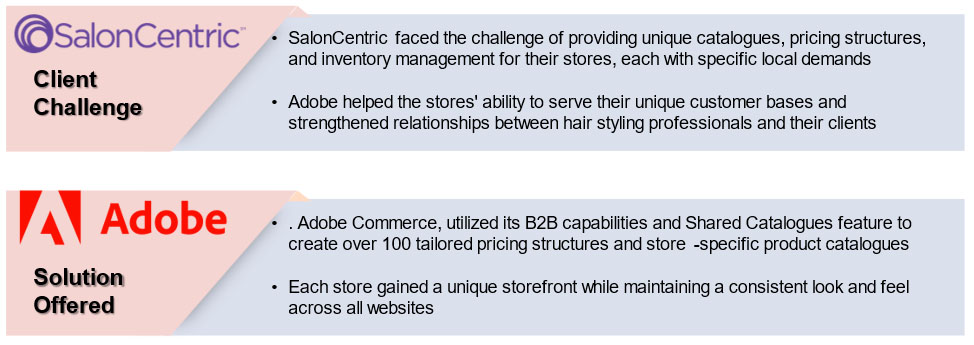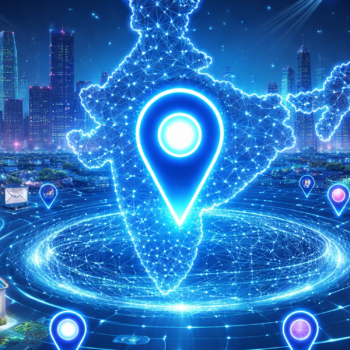Pooja S Patel, Consultant and Darshan Dutta, Senior Consultant at Avalon Consulting, co-authored an article titled “Key Learnings from the B2B Customer Experience Journey: Improving CX is Now!”
They explored the growing importance of customer experience (CX) in B2B markets, where complex transactions and long-term relationships require more than just competitive pricing.
Drawing from case studies across industries, they outlined six impactful practices—ranging from simplifying customer journeys to leveraging technology and personalization—to improve CX and drive loyalty. The authors argue that in today’s landscape, enhancing B2B CX is not just a differentiator but a necessity for sustainable growth.

In today’s competitive B2B landscape, customer experience (CX) has evolved from a differentiator to a fundamental expectation. Unlike B2C purchases, B2B transactions often involve multiple decision-makers and require long-term partnerships which make it complicated. A positive CX is crucial for building trust, encouraging loyalty, and translates into repeat business.
Based on our experience, we’ve identified several 6 practices to improve CX in B2B transactions:
- Map the Maze and Become the Guide: Understanding the B2B Buyer Journey
B2B purchases are rarely straightforward & most buyers emphasize the importance of ease of doing business. Unlike B2C purchases, which can be completed in a few clicks or a quick store visit, B2B transactions are complex and often involve a lengthy process managed by key account managers alongside a challenging order process.
GE improved their B2B purchasing experience by upgrading the GE Healthcare Service Shop. Improvements included expanding inventory to $1.5 billion with 489K parts, integrating multi-vendor support, adding advanced search and reordering features. These enhancements enabled healthcare providers to efficiently search, compare, purchase online, check order statuses, and manage deliveries, offering a consumer-like experience. This upgrade eventually saved 300,000 customer minutes and ensured a 96% on-time delivery rate.
- Speak Their Language: The Power of Clear Communication
Using technical jargon may impress your engineers, but it can confuse B2B customers. Imagine an investment firm bombarding clients with complex financial terms. A better approach is clear, concise communication tailored to the audience. Salesforce discovered that simplifying their product brochures and explainer videos significantly increased customer comprehension and satisfaction.
By using everyday language, businesses can build stronger relationships with their clients. When customers understand the information presented to them, they are more likely to trust the company and feel confident in their decisions. Companies that prioritize clear communication are often seen as more transparent and approachable setting them apart from competitors who rely on complex jargon.
- Technology as a Teammate, Not a Taskmaster
Technology can streamline processes, automate tasks, and provide self-service options, but it should not replace human interaction entirely. HubSpot, a marketing software company, uses a customer portal for easy access to knowledge-based articles, tutorials, and FAQs – utilizing technology to resolve queries. However, they also ensure a dedicated customer success team is available for personalized guidance and troubleshooting.
Customers avoid churn when the support team can solve their problem during the first interaction. While AI chatbots can handle many support tasks, the human touch remains essential. Long-term and high-value customers especially prefer special attention and prompt resolutions, achievable when technology is used alongside human interaction to provide relevant and accurate information.
- Speed is King and Queen: Streamline Processes for Efficiency
In the B2B landscape, speed and efficiency directly impact customer satisfaction & customers might switch if they face slow service. Streamlined processes ensure quicker responses, faster delivery times, and an overall better CX. Amazon Business excels in this area by leveraging advanced logistics and automated inventory management, providing rapid order fulfilment and real-time tracking, which significantly improved customer retention rates. Automatic order processing is another area for improvement since it reduces manual errors and accelerates the process. Dell’s automated order system has reduced processing times by 60%, leading to faster deliveries and happier customers.
- Data-Driven Decisions: Leverage Customer Insights
In B2B, personalization is key to delivering exceptional customer experiences. Leveraging data-driven insights allows companies to tailor their offerings to meet the specific needs of each client. According to Salesforce, many B2B buyers expect personalized experiences that reflect their individual preferences and business needs.
Uses of data-driven decisions include
Use cases

- From One-Size-Fits-All to One-on-One: Personalization is Key
B2B customers are not faceless entities; they are people with specific challenges, and they expect personalized content when using products and services. Adobe helped SalonCentric, a subsidiary of L’Oréal which provides salon products and owns salon stores, personalize their B2B offering.
Personalized offering for a B2B Customer
Case Study

Making B2B CX a Competitive Advantage
Customer experience for B2B companies sometimes is an afterthought, however, enhancing customer experience for B2B companies can have significant benefits, even if the results are not directly visible. Decreasing friction for customers by simplifying their experience through speed or communication while enriching the process with technology and efficiency will lead to greater loyalty and positive word of mouth. In times when product differentiation is difficult, ensuring that the experience of B2B customers is prioritized in the design of processes or products will help any company stand out.







